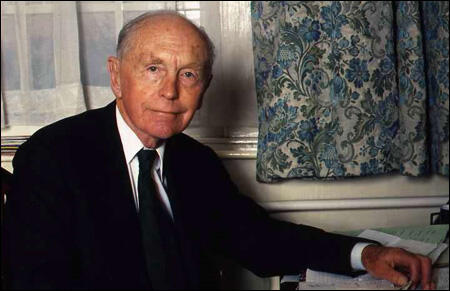On this day on 9th October
On this day in 1192 Richard I of England, the Lion Heart, leaves Jerusalem in disguise. Winston Churchill claims that Richard the Lionheart, despite his many faults, was one of England's most important heroes. "His memory has always stirred English hearts, and seems to present throughout the centuries the pattern of the fighting man. Although a man of blood and violence, Richard was too impetuous to be either treacherous or habitually cruel. He was as ready to forgive as he was hasty to offend; he was open-handed and munificent to profusion; in war circumspect in design and skilful in execution; in politics a child, lacking in subtlety and experience. His political alliances were formed upon his likes and dislikes; his political schemes had neither unity nor clearness of purpose."
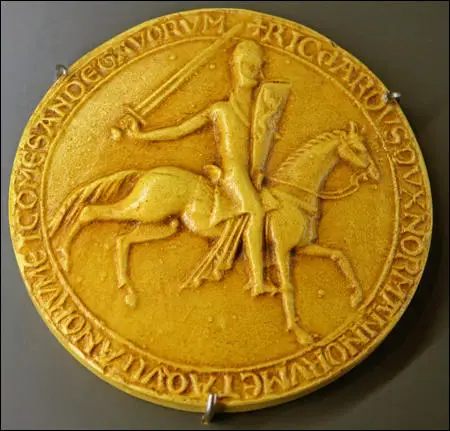
Richard the Lionheart's seal (c. 1190)
On this day in 1290 the last of 16,000 Jews expelled by King Edward I leave England. The first Jewish communities of significant size came to England with William the Conqueror in 1066, when William issued an invitation to the Jews of Rouen to move to England, because he wanted feudal dues to be paid to the royal treasury in coin rather than in kind, and for this purpose it was necessary to have a body of men scattered through the country who would supply quantities of coin. The Edict of Expulsion was a royal decree issued on 18 July 1290. Edward advised the sheriffs of all counties he wanted all Jews expelled by no later than All Saints' Day (1 November) that year. The expulsion edict remained in force for the rest of the Middle Ages . The edict was not an isolated incident, but the culmination of over 200 years of increasing antisemitism .
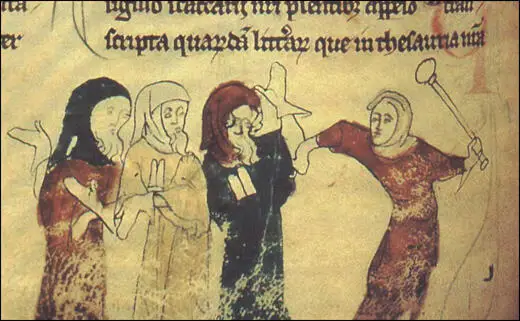
and yellow are wearing a badge in the shape of two tablets, identifying them as Jews
On this day in 1635 religious dissident Roger Williams banished from the Massachusetts Bay Colony. Williams objected to the royal charter of Massachusetts because it contained a lie when it claimed that England first discovered the region. Williams argued that the king had no right to grant the land to the settlers and that it should be purchased from the Native Americans. Although John Winthrop accepted the truth of this argument, he feared that if the king heard about what Williams was saying he might take back control of the colony and bring an end to this Puritan republic. Winthrop therefore decided to banish Williams from the colony. Williams and his followers moved to Rhode Island where they purchased land from the Narragansett Indians at Providence. Williams established a democratic society and a haven of religious toleration and admitted Jews and Quakers into the colony. Anne Hutchinson, who had been banished by John Winthrop from the Massachusetts colony, also joined Williams on Rhode Island. So did Quakers such as Elizabeth Hooton and Mary Dyer.
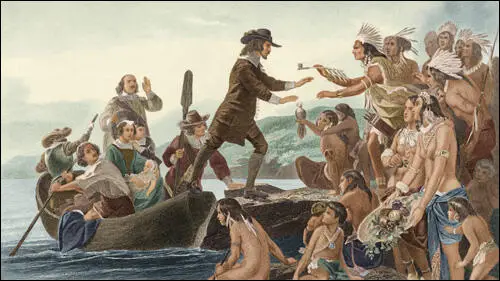
On this day in 1665 the House of Commons meets at the University of Oxford rather than the Palace of Westminster because of the Great Plague of London.
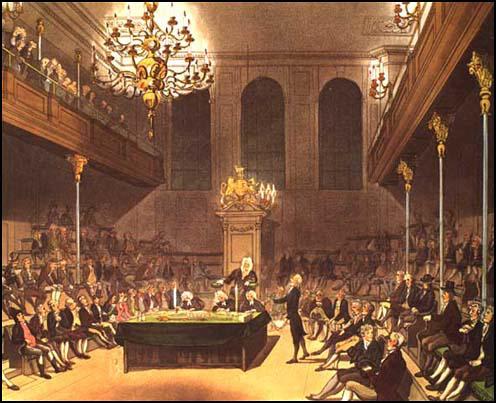
On this day in 1823 Mary Ann Cary, the former slave and women's suffrage campaigner was born in Wilmington, Delaware. She moved to Canada and while based in Toronto she published and edited the anti-slavery newspaper, Provincial Freeman. The newspaper included several articles illustrating the role played by women in the emancipation struggle and argued against all forms of gender discrimination. In 1869, at the age of forty-six, became the first woman student at the Howard University Law School. While studying for her degree Cary worked with Frederick Douglass on the National Era newspaper. Cary's articles often dealt with women's suffrage and in 1871 she and sixty-three other women attempted to register to vote in Washington. Cary was also the founder of the Colored Women's Progressive Franchise Association in 1880. In her final years Cary campaigned for training programmes for equal rights, an increase in the number of occupations open to women, co-operative stores and local labour bureaus. Mary Ann Cary died on 5th June, 1893.
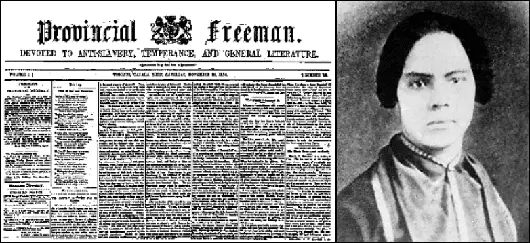
On this day in 1863, Emil Eichhorn, an important figure in the German Revolution, was born in Chemnitz-Röhrsdorf. On 9th November, 1918, he was appointed head of the Berlin Police Department. As Rosa Levine pointed out: "A member of the Independent Socialist Party and a close friend of the late August Bebel, he enjoyed great popularity among revolutionary workers of all shades for his personal integrity and genuine devotion to the working class. His position was regarded as a bulwark against counter-revolutionary conspiracy and was a thorn in the flesh of the reactionary forces."
On 4th January, 1919, Friedrich Ebert, Germany's new chancellor, ordered the removal of Eichhorn, as head of the Police Department. Chris Harman, the author of The Lost Revolution (1982), has argued: "The Berlin workers greeted the news that Eichhorn had been dismissed with a huge wave of anger. They felt he was being dismissed for siding with them against the attacks of right wing officers and employers. Eichhorn responded by refusing to vacate police headquarters. He insisted that he had been appointed by the Berlin working class and could only be removed by them. He would accept a decision of the Berlin Executive of the Workers' and Soldiers' Councils, but no other."
Friedrich Ebert, Germany's new chancellor, called in the German Army and the Freikorps to bring an end to the rebellion. By 13th January, 1919 the rebellion had been crushed and most of its leaders were arrested. After the suppression of the Spartacus Uprising, Eichhorn went into hiding. In 1920 he joined the German Communist Party but remained a supporter of the theories of Rosa Luxemburg and this brought him into conflict with Vladimir Lenin and Leon Trotsky. In 1921 Paul Levi resigned as chairman of the KPD over policy differences. Later that year, Lenin and Trotsky, demanded that he should be expelled from the party. Eichhorn resigned along with Levi. Eichhorn died in Berlin on 26th July, 1925.
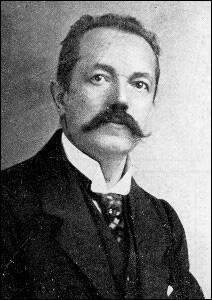
On this day in 1864 Brigadier General George Custer takes part in the defeat of Jubal A. Early and his Confederate Army at Tom's Brook. It was a significant Union Army victory during the American Civil War. One that was mockingly dubbed the "Woodstock Races" for the speed of the Confederate withdrawal.
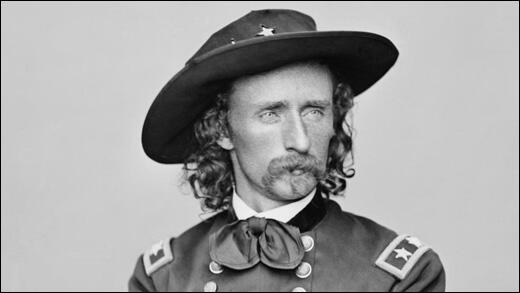
On this day in 1932 Soviet leader Joseph Stalin expels Lev Kamenev and Gregory Zinoviev from the Communist Party after a power struggle. In July 1936 Nikolai Yezhov told Kamenev and Zinoviev that their children would be charged with being part of the conspiracy and would face execution if found guilty. The two men now agreed to co-operate at the trial if Stalin promised to spare their lives. At a meeting with Stalin, Kamenev told him that they would agree to co-operate on the condition that none of the old-line Bolsheviks who were considered the opposition and charged at the new trial would be executed, that their families would not be persecuted, and that in the future none of the former members of the opposition would be subjected to the death penalty. Stalin replied: "That goes without saying!"
On 24th August, 1936, Vasily Ulrikh entered the courtroom and began reading the long and dull summation leading up to the verdict. Ulrikh announced that all sixteen defendants were sentenced to death by shooting. Edward P. Gazur has pointed out: "Those in attendance fully expected the customary addendum which was used in political trials that stipulated that the sentence was commuted by reason of a defendant's contribution to the Revolution. These words never came, and it was apparent that the death sentence was final when Ulrikh placed the summation on his desk and left the court-room."
The following day Soviet newspapers carried the announcement that all sixteen defendants had been put to death. This included the NKVD agents who had provided false confessions. Joseph Stalin could not afford for any witnesses to the conspiracy to remain alive. Edvard Radzinsky, the author of Stalin (1996), has pointed out that Stalin did not even keep his promise to Kamenev's sons and later both men were shot.
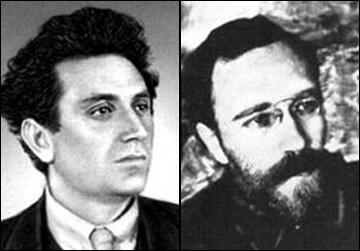
On this day in 1941 President Franklin D. Roosevelt approves an atomic program that would become the Manhattan Project. In 1942 the Manhattan Engineer Project was established under the command of Brigadier General Leslie Groves. Scientists recruited to produce an atom bomb included Robert Oppenheimer (USA), David Bohm (USA), Leo Szilard (Hungary), Eugene Wigner (Hungary), Rudolf Peierls (Germany), Otto Frisch (Germany), Niels Bohr (Denmark), Felix Bloch (Switzerland), James Franck (Germany), James Chadwick (Britain), Emilio Segre (Italy), Enrico Fermi (Italy), Klaus Fuchs (Germany) and Edward Teller (Hungary).
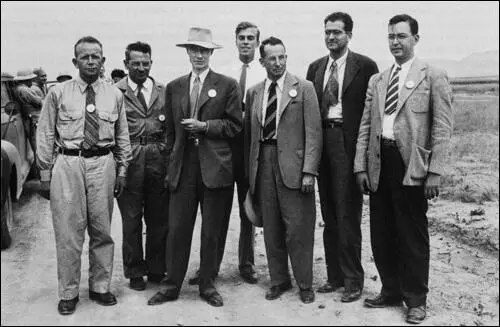
Robert Oppenheimer, Louis Hempelmann, Robert Bacher, Victor Weisskopf & Richard Dodson.
On this day in 1943 Anne Frank writes in her diary: "Our many Jewish friends are being taken away by the dozen. These people are being treated by the Gestapo without a shred of decency, being loaded into cattle trucks and sent to Westerbork."
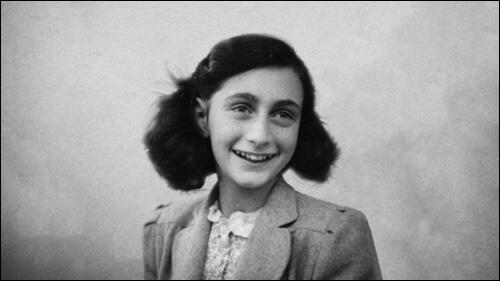
On this day in 1944 Kitty Marion, who endured 232 force-feedings in prison died in New York City at the Margaret Sanger Nursing Home.
Kitty Marion (Katherina Schafer) was born in Westphalia, Germany on 12th March 1871. Her mother died when she was two and her stepmother when she was six, both of tuberculosis. Her childhood was spent moving between her father, "a strict disciplinarian with a fierce, violent, and evidently uncontrollable temper".
In 1886 she moved to England to be with her sister, Dora. After learning English she adopted the name Kitty Marion and became an actress. In 1889 she was engaged for the pantomime season in Glasgow. According to her biographer, Vivien Gardner: "Her first job was as a chorus member in Robinson Crusoe at the Theatre Royal, Glasgow. Between 1889 and 1903, adopting the name Kitty Marion, she developed a modest but successful career in provincial touring theatre as a singer and dancer in musical comedy and pantomime, graduating from the chorus to minor named roles."
Over the next few years she became a star of the musical hall and she was billed as the "Refined Vocal Comedienne". In 1899 she appeared at the Prince of Wales Theatre in Liverpool, on the same bill as Vesta Tilley. In her autobiography she complained about the "casting couch" tactics of music-hall agents and this was one of the factors that encouraged her to join the Women's Social and Political Union (WSPU) in 1908. "For Marion, it was a radical ideology that answered the aggressive and violent assaults she had been subjected to throughout her working life, and offered a clear way to combat the social attitudes that dominated her world - the misogynistic belief that any man had a physical right to any woman's body, without her consent."
Kitty Marion took a keen interest in politics and in 1908 joined the Women's Social and Political Union (WSPU). She moved to Hartfield in East Sussex and was an active member of the WSPU branch in Brighton. In June she was arrested during a demonstration outside the House of Commons. She later recalled: "Two policemen, one on each arm, quite unnecessarily pinching and bruising the soft underarm, with the third often pushing at the back, would run us along and fling us, causing most women to be thrown to the ground."
Kitty Marion was a supporter of direct action and in July 1909 she was arrested and found guilty of throwing stones at a post office in Newcastle. She was sentenced to a month's imprisonment, went on hunger strike, and was forcibly fed. She barricaded herself in her cell and set fire to her mattress as a protest at her treatment at the hands of the doctors who she described as the "dirty, cringing doormats of the government".
Later that year Kitty Marion joined Elizabeth Robins in helping to form the Actresses' Franchise League. The AFL was open to anyone involved in the theatrical profession and its aim was to work for women's enfranchisement by educational methods, selling suffrage literature and staging propaganda plays. Other actresses who joined included Winifred Mayo, Sime Seruya, Edith Craig, Inez Bensusan, Ellen Terry, Lillah McCarthy, Sybil Thorndike, Vera Holme, Lena Ashwell, Christabel Marshall, Lily Langtry and Nina Boucicault.
In October 1909 she joined forces with Constance Lytton, Jane Brailsford and Emmeline Pethick-Lawrence and wrote a letter to The Times saying: "We want to make it known that we shall carry on our protest in our prison cells. We shall put before the Government by means of the hunger-strike four alternatives: to release us in a few days; to inflict violence upon our bodies; to add death to the champions of our cause by leaving us to starve; or, and this is the best and only wise alternative, to give women the vote."
Kitty Marion continued to work as an actress and was a significant figure in the Variety Artists' Federation and its campaign against of theatrical agents who she claimed were sometimes involved in the "white slave trade". As Elizabeth Crawford, the author of The Women's Suffragette Movement: A Reference Guide (1999), pointed out: "She received a WSPU hunger strike medal in a ceremony at the Albert Hall on 9 December and then went on to do the Christmas pantomime season."
During the 1910 General Election the NUWSS organised the signing petitions in 290 constituencies. They managed to obtain 280,000 signatures and this was presented to the House of Commons in March 1910. With the support of 36 MPs a new suffrage bill was discussed in Parliament. The WSPU suspended all militant activities and on 23rd July they joined forces with the NUWSS to hold a grand rally in London. When the House of Commons refused to pass the new suffrage bill, the WSPU broke its truce on what became known as Black Friday on 18th November, 1910, when its members clashed with the police in Parliament Square. Kitty Marion was arrested during this demonstration but she was released without charge.
Kitty Marion toured the country giving lectures and musical performances. She was billed as the "Music Hall Artiste and Militant Suffragette" and after one meeting in Colchester it was reported: "The awe experienced by the audience was quickly succeeded by delight, for the lady proved a charming vocalist".
In November 1911 she was again arrested outside the House of Commons after taking part in the protest following the defeat of the Conciliation Bill, and was sentenced to 21 days' imprisonment. When in Holloway Prison she again went on hunger-strike and was forced-fed. A friend, Mary Leigh, described what it was like to experience this form of punishment: "On Saturday afternoon the wardress forced me onto the bed and two doctors came in. While I was held down a nasal tube was inserted. It is two yards long, with a funnel at the end; there is a glass junction in the middle to see if the liquid is passing. The end is put up the right and left nostril on alternative days. The sensation is most painful - the drums of the ears seem to be bursting and there is a horrible pain in the throat and the breast. The tube is pushed down 20 inches. I am on the bed pinned down by wardresses, one doctor holds the funnel end, and the other doctor forces the other end up the nostrils. The one holding the funnel end pours the liquid down - about a pint of milk... egg and milk is sometimes used."
Christabel Pankhurst decided that the WSPU needed to intensify its window-breaking campaign. On 1st March, 1912, a group of suffragettes volunteered to take action in the West End of London. The Daily Graphic reported the following day: "The West End of London last night was the scene of an unexampled outrage on the part of militant suffragists.... Bands of women paraded Regent Street, Piccadilly, the Strand, Oxford Street and Bond Street, smashing windows with stones and hammers."
Kitty Marion recalls in her autobiography that she broke windows of the Silversmiths' Association and at Sainsbury's at 134 Regent Street. She was arrested, found guilty and sentenced to six month's imprisonment. Holloway Prison was full so Marion and 23 other members of the WSPU were sent to Winson Green Prison in Birmingham. She again went on hunger-strike and she was released after 10 days.
In July 1912, the WSPU began organizing a secret arson campaign. According to Sylvia Pankhurst: "When the policy was fully underway, certain officials of the Union were given, as their main work, the task of advising incendiaries, and arranging for the supply of such inflammable material, house-breaking tools and other matters as they might require. Women, most of them very young, toiled through the night across unfamiliar country, carrying heavy cases of petrol and paraffin. Sometimes they failed, sometimes succeeded in setting fire to an untenanted building - all the better if it were the residence of a notability - or a church, or other place of historic interest." (
The WSPU used a secret group called Young Hot Bloods to carry out these acts. No married women were eligible for membership. The existence of the group remained a closely guarded secret until May 1913, when it was uncovered as a result of a conspiracy trial of eight members of the suffragette leadership, including Flora Drummond, Annie Kenney and Rachel Barrett. During the trial, Barrett said: "When we hear of a bomb being thrown we say 'Thank God for that'. If we have any qualms of conscience, it is not because of things that happen, but because of things that have been left undone."
Kitty Marion decided she would join this group: "I was becoming more and more disgusted with the struggle for existence on commercial terms of sex … I gritted my teeth and determined that somehow I would fight this vile, economic and sex domination over women which had no right to be, and which no man or woman worthy of the term should tolerate." It has been argued that this group included Helen Craggs, Olive Hockin, Lilian Lenton, Miriam Pratt, Norah Smyth, Clara Giveen, Hilda Burkitt, Olive Wharry and Florence Tunks.
Fern Riddell has pointed out: "Kitty Marion's hand is evident in attacks from Manchester to Portsmouth; the scope of her attacks overlays neatly into areas she had become well acquainted with during her music hall and theatrical days, which afforded her the luxury of an already established network of lodging houses and local knowledge, allowing her to visit areas and conduct militant activity."
Clara Giveen teamed up with Kitty Marion. "Clara was ten years younger than Kitty... It is not unusual to find the pairing of a woman in her mid-thirties with a younger, early twenties woman among the militant suffragettes who caused such damage at the time. The bonds between these women, working in pairs, became unbreakable.".
The women decided that setting fire to the Grand Stand at the Hurst Park racecourse as it "would make a most appropriate beacon". The women returned to a house in Kew owned by Eileen Casey. A police constable who had been detailed to watch the house, saw the two women return and during the course of the next morning they were arrested.
Giveen's local newspaper reported: "One of the two Suffragettes arrested at Kingston charged in connection with the fire which on Monday did £10,000 damage to the stands at Hurst Park racetract was Miss Clara Giveen. Miss Giveen who is a lady of independent means, is known in Bexhill, having been associated for some time with the local branch of the WSPU. When arrested at the residence of Dr Casey, Miss Giveen was found lying on a bed in one of the upper rooms, fully dressed. By her side was a copy of the Suffragette. In her room there was a quantity of resin... Miss Giveen in whose room was found the picture of a house burnt down at Eastbourne, was remanded, bail being allowed."
It seems that the police had been watching the homes of women that had been offering help to those women involved in these arson attacks. "On Tuesday two women, Kitty Marion and Clara Giveen, of independent means, were charged at Richmond with loitering, with intent to commit a felony. A policeman who followed them about various streets at Kew at a quarter past 2 on Monday morning, questioned them, and seen them eventually enter the home of a Dr Casey with a latchkey. A tramcar man identified Marion as being with another women near the racecourse shortly before the fire, and there is other identification evidence. A piece of carpet used to get over the barbed wire of Hurst Park is identified by Marion's landlady as her property."
Their trial began at Guildford on 3rd July. Giveen and Marion were defended by Ian Macpherson, a Liberal Party member of Parliament, who did not call any evidence. "He pleaded to the jury for an unbiased judgment, and to guard against a certain type of female who felt she was being defrauded by the law of the land of what she regarded as a just and proper - the exercise of the vote." Giveen said no evidence should be passed as they had not been tried by their peers. "Until women were on a jury as well as men, no sentence should be passed upon women."
The main evidence against the women involved a fireman called Brown who claimed he saw Marion and Giveen carrying a portmanteau (a large travelling bag). Nearly two hours later he heard a fire hooter and discovered the fire. Soon afterwards he encountered the same woman without the portmanteau. "They were also seen by a tramcar driver named Middleton, who identified Miss Marion. Later the police found tracks leading to the fence bounding the racecourse, and a large piece of Brussels carpet. At the grand stand were found copies of The Suffragette, showing somebody interested in the question had visited it.
Kitty Marion and Clara Giveen were found guilty and sentenced to three years' penal servitude. They both went on hunger strike and after five days were released under the Cat & Mouse Act. They were taken to a Women's Social and Political Union nursing home, and placed under the care of Dr. Flora Murray and Catherine Pine.
Christabel Pankhurst pointed out: "Perhaps the Government will realise now that we mean to fight to the bitter end … If men use explosives and bombs for their own purpose they call it war, and the throwing of a bomb that destroys other people is then described as a glorious and heroic deed. Why should a woman not make use of the same weapons as men. It is not only war we have declared. We are fighting for a revolution."
In 1913 the WSPU arson campaign escalated and railway stations, cricket pavilions, racecourse stands and golf clubhouses being set on fire. Slogans in favour of women's suffrage were cut and burned into the turf. Suffragettes also cut telephone wires and destroyed letters by pouring chemicals into post boxes. Marion was a leading figure in the WSPU arson campaign and she was responsible for setting fire to Levetleigh House in St Leonards in April 1913.
From a scrapbook she kept it seems that Kitty Marion also set fire to a train, left standing between Hampton Wick and Teddington on 26th April: "The train was afterwards driven into Teddington Station, where an examination resulted in the discovery of inflammable materials in almost every set of coaches. Among the articles found in the train were partly-burnt candles, four cans of petroleum, three of which had been emptied of their contents, a lady's dressing case containing a quantity of cotton wool, and packages of literature dealing with the woman suffrage movement. Newspaper cuttings of recent suffragette outrages were also found scattered about the train … The method adopted was very simple. First the cushions were saturated with petroleum, and then small pieces of candle were lighted immediately under the seats."
As soon as she recovered she went out and broke a window of the Home Office. She was arrested and taken back to Holloway Prison. After going on hunger strike for five days she was again released to a WSPU nursing home. According to her own account, she now set fire to various houses in Liverpool (August, 1913) and Manchester (November, 1913). These incidents resulted in a series of further terms of imprisonment during which force-feeding occurred. It has been calculated that Kitty Marion endured 232 force-feedings in prison while on hunger strike.
Elizabeth Robins disapproved of Kitty Marion's arson campaign but she wrote a circular letter to over 100 leading figures asking them to bring an end to these force-feedings. Robins and Octavia Wilberforce used their 15th century farmhouse at Backsettown, near Henfield, as a hospital and helped her recover from her various spells in prison and the physical effects of going on hunger strike. On 31st May 1914, with the help of Mary Leigh, she escaped to Paris.
The British government declared war on Germany on 4th August 1914. Two days later, Millicent Fawcett, the leader of the NUWSS declared that the organization was suspending all political activity until the conflict was over. Fawcett supported the war effort but she refused to become involved in persuading young men to join the armed forces. The WSPU took a different view to the war. It was a spent force with very few active members. According to Martin Pugh, the WSPU were aware "that their campaign had been no more successful in winning the vote than that of the non-militants whom they so freely derided".
The WSPU carried out secret negotiations with the government and on the 10th August the government announced it was releasing all suffragettes from prison. In return, the WSPU agreed to end their militant activities and help the war effort. Christabel Pankhurst, arrived back in England after living in exile in Paris. She told the press: "I feel that my duty lies in England now, and I have come back. The British citizenship for which we suffragettes have been fighting is now in jeopardy."
After receiving a £2,000 grant from the government, the WSPU organised a demonstration in London. Members carried banners with slogans such as "We Demand the Right to Serve", "For Men Must Fight and Women Must Work" and "Let None Be Kaiser's Cat's Paws". At the meeting, attended by 30,000 people, Emmeline Pankhurst called on trade unions to let women work in those industries traditionally dominated by men. She told the audience: "What would be the good of a vote without a country to vote in!".
Kitty Marion was one of those members of the Women's Social and Political Union who disagreed with the policy of ending militant activities. She resumed her career as an actress but continued to campaign for the vote. As she had been born in Germany, the government decided to deport her from Britain. After protests from figures such as Constance Lytton and Emmeline Pethick-Lawrence, she was allowed to go to the United States.
In America she immediately became involved in politics and worked with Margaret Sanger, Lou Rogers and Cornelia Barns in publishing the Birth Control Review. She was arrested several times for violating obscenity laws in New York, and was imprisoned for 30 days in 1918. While in prison Kitty Marion met two other radicals, Mollie Steimer and Agnes Smedley. In 1921 Marion joined Sanger in establishing America's first birth-control clinic. However, the clinic in Brooklyn was closed by the police.
Kitty Marion, wrote an autobiography about her experiences but it was never published. In 1930 she moved to London and gave a copy to the Fawcett Library. She worked with Edith How-Martyn at the Birth Control International Centre. but later returned to New York City and lived there until her death at the Sanger Nursing Home on 9th October 1944.
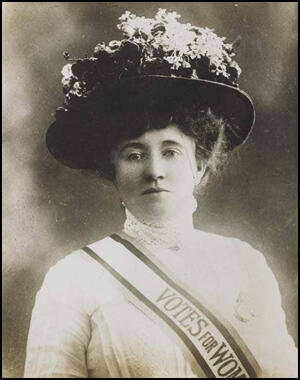
On this day in 1944 Winston Churchill and Joseph Stalin meet in Moscow. These originally-proposed spheres of influence that Churchill were nominated to Stalin in percentages: Romania = 90% Russian; Greece = 90% Great Britain (in accord with USA) and Russian 10%; Yugoslavia = 50-50%, Hungary = 50-50%, Bulgaria = 75% Russian. ] Averell Harriman US ambassador to the Soviet Union, representing President Franklin D. Roosevelt, was not present for the discussions, but Churchill informed Roosevelt on 10 October of an agreement after more deliberations. However, it is not certain to what extent the true details were made known at the time.
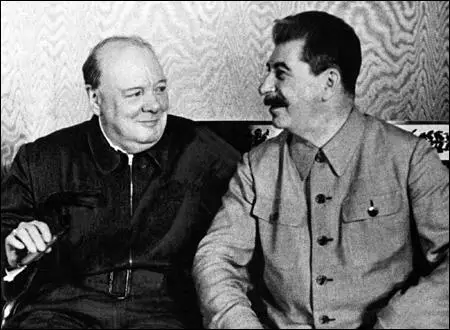
On this day in 1953 Konrad Adenauer elected Chancellor of West Germany. He held power for the next fourteen years. In 1950 Adenauer appointed Walter Hallstein as undersecretary of state and was leader of the German delegation at the Schuman Plan Conference. In this post he developed what became known as the Hallstein Doctrine. According to this doctrine, the Federal Republic of Germany (West Germany) had exclusive right to represent the entire German nation. Except for the Soviet Union, the government refused to maintain diplomatic relations with states that recognized the German Democratic Republic (East Germany).
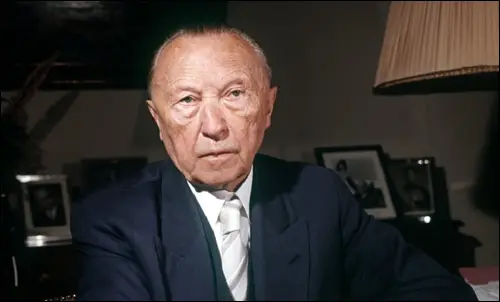
On this day in 1963 British Prime Minister Harold Macmillan resigns and is replaced by Alec Douglas-Home. He immediately resigned his peerage and won a by-election at Kinross and Western Perthshire. A year later the Conservative Party was defeated at the 1964 General Election and Harold Wilson became the new prime minister.
